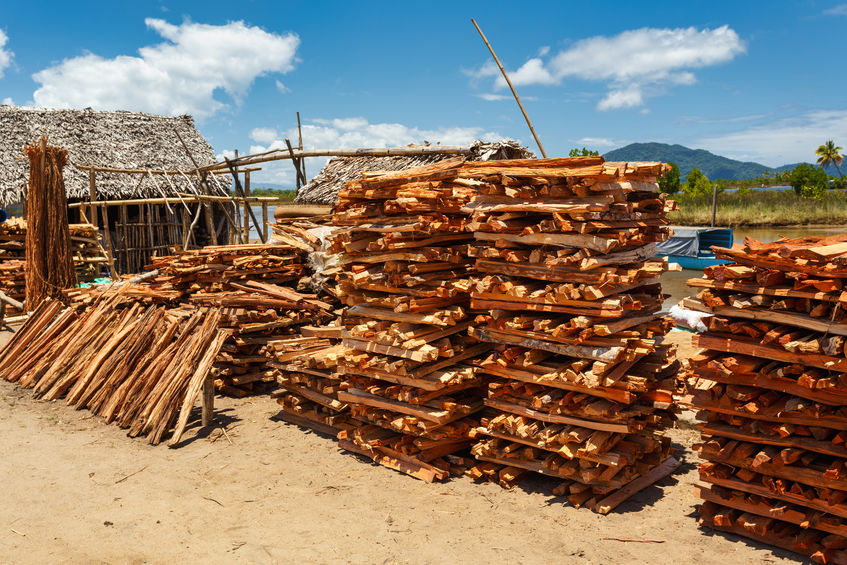For two years, it has been illegal to trade “ordinary” wood logged from natural Madagascar forests.
That changed on October 21, when the council of ministers reopened the domestic market for ordinary wood. Ordinary wood refers to non-precious timber that is more common to the country, while precious timber in danger of disappearing refers to species like rosewood and ebony.
The ban on ordinary wood was initially put in place because Madagascar’s forests are shrinking, and corruption and illegal over-logging are the leading causes.
The shift in policy comes because Madagascar uses timber for many things, including many of its buildings and a good amount of fuel. Additionally, the logging industry had a large amount of inventory sitting that it was unable to sell.
New logging, as well as international exports, remain prohibited for all types of natural forest timber. This ruling simply allows timber companies to sell the stockpiles they already have.
Stocks of what are called “exotic” wood, however, such as pine and eucalyptus, has been and remains legal.
Mongabay reports that:
“The move only pertains to commercial timber use. Communities continue to enjoy their traditional rights to harvest timber from natural forests for domestic consumption, such as fuelwood or home construction, provided they comply with the rules and never commercialize the wood. ‘The hunting of wild animals and the destruction of any protected areas are crimes resulting in severe sanctions,’ the environment ministry’s press release stated.
“The move to reopen the Malagasy wood sector is the fruit of a series of negotiations between the industry and the government, said Rose Razanarisoa, head of Madagascar’s forest operators’ trade group, GNEFM. ‘The 2019 suspensions asphyxiated our activity,’ she told Mongabay, and the group lobbied the government hard to lift them.”
While market forces would be the best route for recovering endangered tree species and shrinking forests by providing an economic incentive to keep planting and protecting trees, corruption and lack of enforcement continue to prove to be the Achilles’ heel for Madagascar’s forests.
Mongabay explains:
Decades of lawlessness and Malagasy politicians’ persistent advocacy to let their constituents freely access forest resources have weakened the country’s forestry administration, Raonintsoa said. With a national average of one agent supervising 200,000 hectares (494,000 acres) of forest, the government’s forestry workforce is severely understaffed.
To read the entire article in Mongabay, click here.
